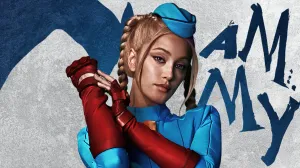The rights to Friday the 13th have famously become a quagmire, after writer Victor Miller terminated the copyright transfer and kicked off a conflict with series producer Sean Cunningham that reverberates out to impact the studio. Now, Jason’s fellow slasher icon Freddy Krueger is among a number of properties Warner Bros. is said to be negotiating to retain. Per a report at Puck, the studio is in negotiations to prevent losing the domestic rights to A Nightmare on Elm Street, Beetlejuice, and Little Shop of Horrors, among others. Copyright termination is part of the Copyright Act of 1978, which expanded the life of copyrights.
Videos by ComicBook.com
Under the law, creators who transferred their copyright to another person or entity, can petition to terminate it after 28 years. Success in actually doing so has been somewhat mixed, since corporations often successfully argue that works were made for hire, meaning that the company is the original creator, and the writer or artist never really held the rights to sell.
The article describes rights terminations as a ticking timebomb for studios, which is not an entirely unfair characterization. In an industry increasingly dominated by big IP, and where sequels, spinoffs, and remakes are generating hudreds of millions of dollars while new properties are difficult to launch, studios have to have some concern about the practice. Puck also cites franchises like RoboCop as being potentially in play soon. Depending on the individual deals struck by the creators, studios are only a few years away from having to renegotiate — or potentially lose — things like Beetlejuice and A Nightmare on Elm Street, both of which have made big money for studios over the years.
Beetlejuice sequels are always seemingly just a couple of steps away from getting actually made. One could reasonably wonder whether rights termination becomes part of that conversation, and the negotiating process. A Nightmare on Elm Street has not had a new installment since 2010, and at this point iconic series lead Robert Englund is likely too old to be eager to get back into all that makeup. That means the studio will be forced to completely rebuild the franchise for the next installment…but it’s unlikely that will discourage them from wanting to hang onto it.
In the years to come, many of the 1980s’ biggest properties could be subject to copyright termination, and that could fundamentally change the way some of these sequels, remakes, and “rebootquels” happen.








